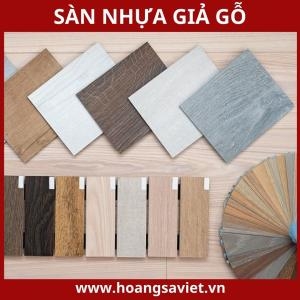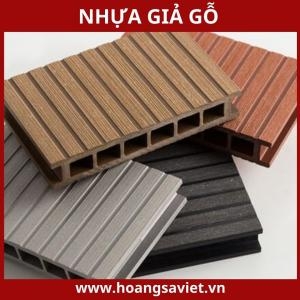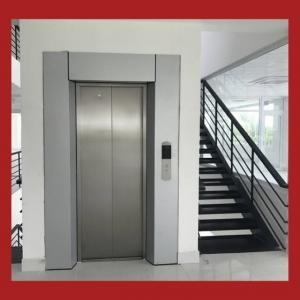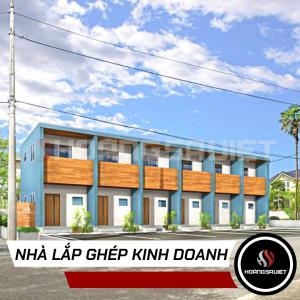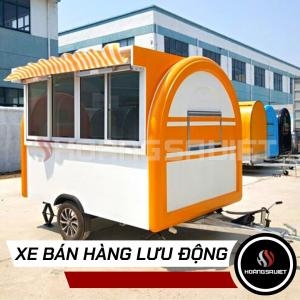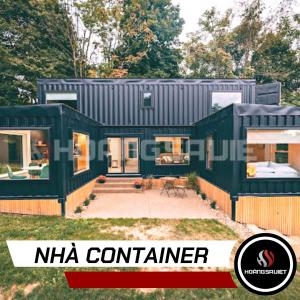The system is processing. Please wait a moment!
Vui lòng lựa chọn loại báo giá!
- Home Product MATERIALS FOR PREFABRICATED HOUSES Prefabricated Roof Materials
Roof
TABLE OF CONTENTS
Currently, roofing sheets are widely used in civil projects thanks to their flexibility and high durability. The market today offers many different designs and types of corrugated iron, each with its own advantages and disadvantages, suitable for different architectural styles and uses. Let's learn about the best types of roofing sheets and update the current price list of roofing sheets.
What is a corrugated iron roof?
Corrugated iron roofing , also known as corrugated iron roofing or corrugated iron roofing, is a commonly used and widely popular construction material. Designed to protect construction projects such as houses, factories, warehouses from the harsh effects of weather such as sun, rain, wind and storms, roofing sheets are produced on modern technological lines, ensuring outstanding quality and performance.
Thanks to its outstanding advantages of high durability, good resistance and high aesthetics, corrugated iron roofing has become a trusted choice of many contractors, construction units and homeowners. This material not only ensures optimal protection for the project but also brings modern, sophisticated beauty, suitable for many different types of architecture.
.jpg)
With the ability to be waterproof, anti-corrosion and resistant to strong impacts, corrugated iron roofing helps prolong the life of the project, while saving maintenance and repair costs. In particular, the variety of designs and colors of roofing sheets helps homeowners easily choose products that suit their style and needs.
The light weight of corrugated iron roofing is also a great advantage, helping to reduce the load on the project, making it easier to transport and install. Besides, the heat and sound insulation properties of corrugated iron roofing help make living and working spaces cooler and quieter.
SEE MORE PRODUCTS:
Standard roofing corrugated iron sizes
Currently, the standard size of roofing sheets ranges from 940 mm to 1200 mm. The finished gauge and the useful gauge usually range from 800 mm to 1200 mm. This difference depends on the number of corrugated iron panels.
Standard corrugated iron gauge is an important factor in choosing and constructing roofing corrugated iron . With sizes ranging from 940 mm to 1200 mm, roofing sheets ensure flexibility and ease of cutting and installation according to the specific requirements of each project. Finished product and useful sizes from 800 mm to 1200 mm provide diversity in choice, suitable for many different types of architecture and design.
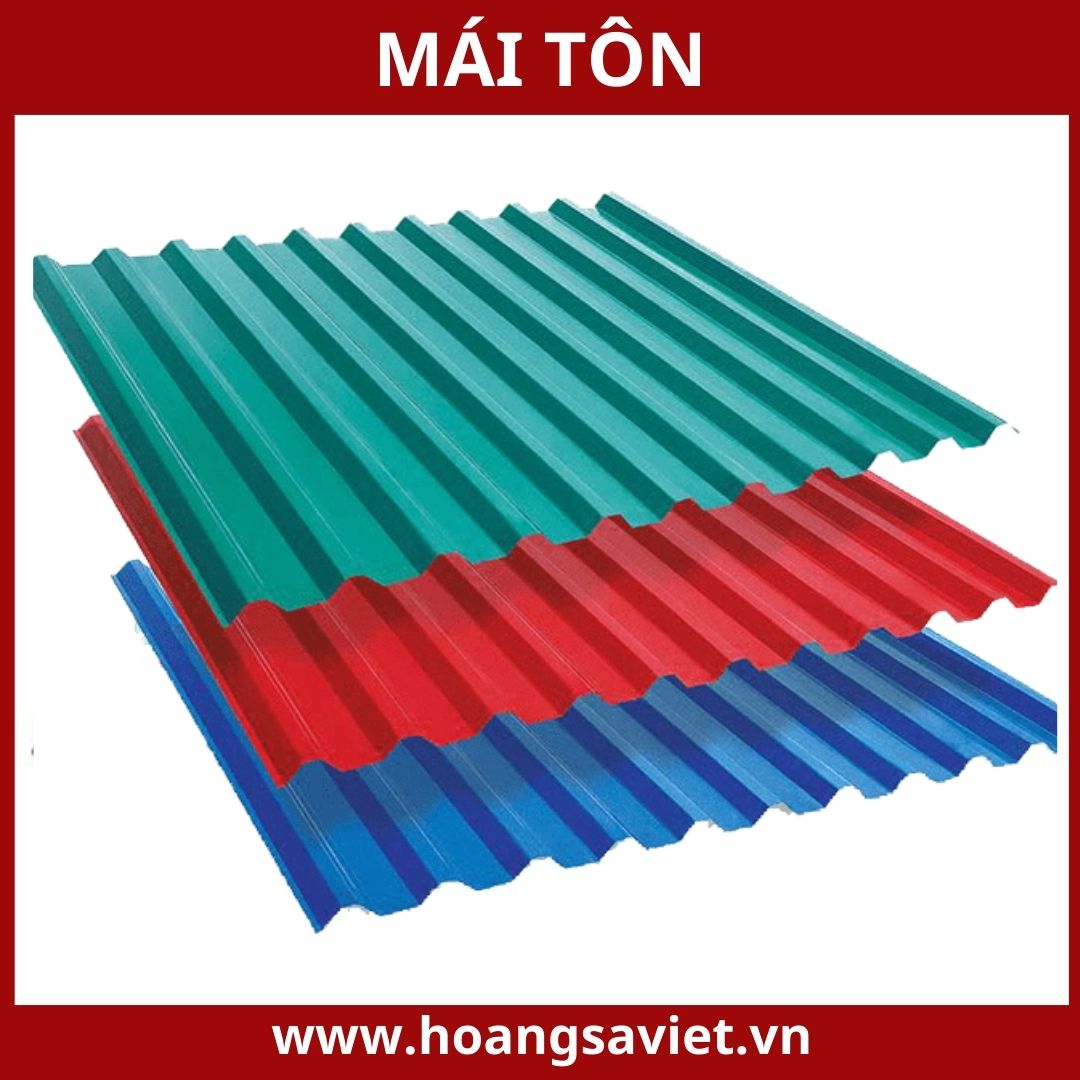
The number of corrugated iron panels also plays an important role in deciding the corrugated iron size. More corrugated iron not only enhances the bearing capacity and durability of the corrugated iron sheet, but also affects the overall size and practical usability of the product.
Understanding these parameters helps investors and contractors choose the most suitable type of roof , ensuring construction efficiency as well as optimizing costs. Choosing the right size and number of corrugated iron panels not only helps improve the durability and resistance of the roof but also ensures aesthetics, bringing satisfaction to the homeowner.
Below are the sizes of some commonly used corrugated iron roofs
Specification: 5 waves
5-wave roofing sheets are a popular choice in construction projects thanks to their outstanding features and flexible application capabilities. Below are the detailed parameters of 5-wave corrugated iron:
- Width: 5-wave corrugated iron has a standard width of 1200 mm, making it easy to cover large surfaces and optimize materials during construction.
- Distance between two consecutive wavelengths : This distance is 250 mm, ensuring uniformity and aesthetics, while enhancing effective rainwater drainage and preventing water stagnation on the roof.
- Corrugated corrugated iron height : The corrugated iron height is 32 mm, helping to increase bearing capacity and impact resistance, while also improving water resistance, providing maximum protection for the project against harsh weather conditions.
- Thickness: 5-wave corrugated iron has a thickness ranging from 0.35 mm to 0.50 mm, providing a variety of choices for different requirements in terms of durability and aesthetics. Greater thicknesses are often used for areas with harsh weather conditions or high load requirements.
- Length: The length of 5-wave corrugated iron is cut according to customer requirements, providing maximum flexibility in design and construction. This helps optimize material use and minimize waste, while meeting the specific technical and aesthetic requirements of each project.
5-wave corrugated iron not only meets technical standards but also brings modern and luxurious beauty to projects. With outstanding advantages in bearing capacity, waterproofing and aesthetics, 5-wave corrugated iron is the top choice for projects that require high quality and solid durability.
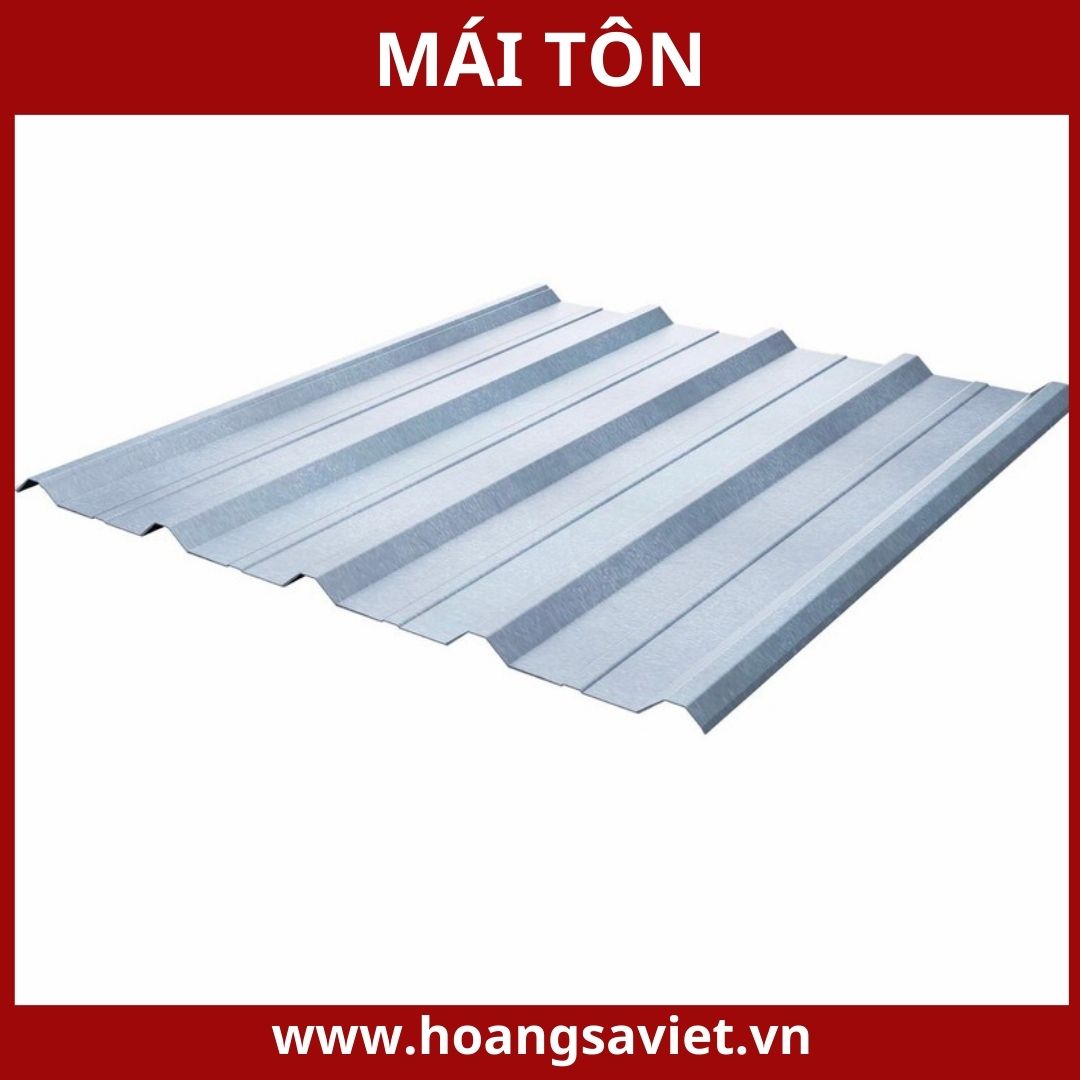
Specification: 9 waves
9-wave corrugated iron roofing is an ideal solution for many construction projects thanks to its good resistance and high aesthetics. Below are the detailed parameters of 9-wave roofing sheets:
- Corrugated iron width : 9-wave roofing corrugated iron has a standard width of 1200 mm. With this size, corrugated iron panels can easily cover large surfaces, minimizing the number of joints and enhancing the protection of the project.
- Distance between wavelengths of corrugated iron : Distance between wavelengths of 9-wave corrugated iron is 125 mm. This distance is optimally designed to ensure stability and uniformity of the corrugated iron sheet, help drain water quickly and prevent water stagnation.
- Corrugated iron wave height : The wave height is 21 mm, helping to increase bearing capacity and impact resistance. Proper wave height also helps improve rainwater drainage efficiency, minimize the risk of water seepage and protect the roof from the effects of weather.
- Thickness : 9-wave roofing sheets have thickness ranging from 0.3 mm to 0.58 mm. This variety of thicknesses provides many options for different projects, from areas that are less exposed to weather to those with harsh climatic conditions.
- Length: The length of 9-wave roofing sheets is cut according to customer requirements. This provides maximum flexibility in design and construction, helping to optimize material usage and minimize waste. Customers can request a length suitable for each specific project, ensuring aesthetics and highest efficiency.
With superior technical specifications and optimal design, 9-wave roofing sheets not only provide durability and good bearing capacity but also help your project become more modern and luxurious. Choosing 9-wave roofing is the perfect solution to protect and enhance the value of your construction project.
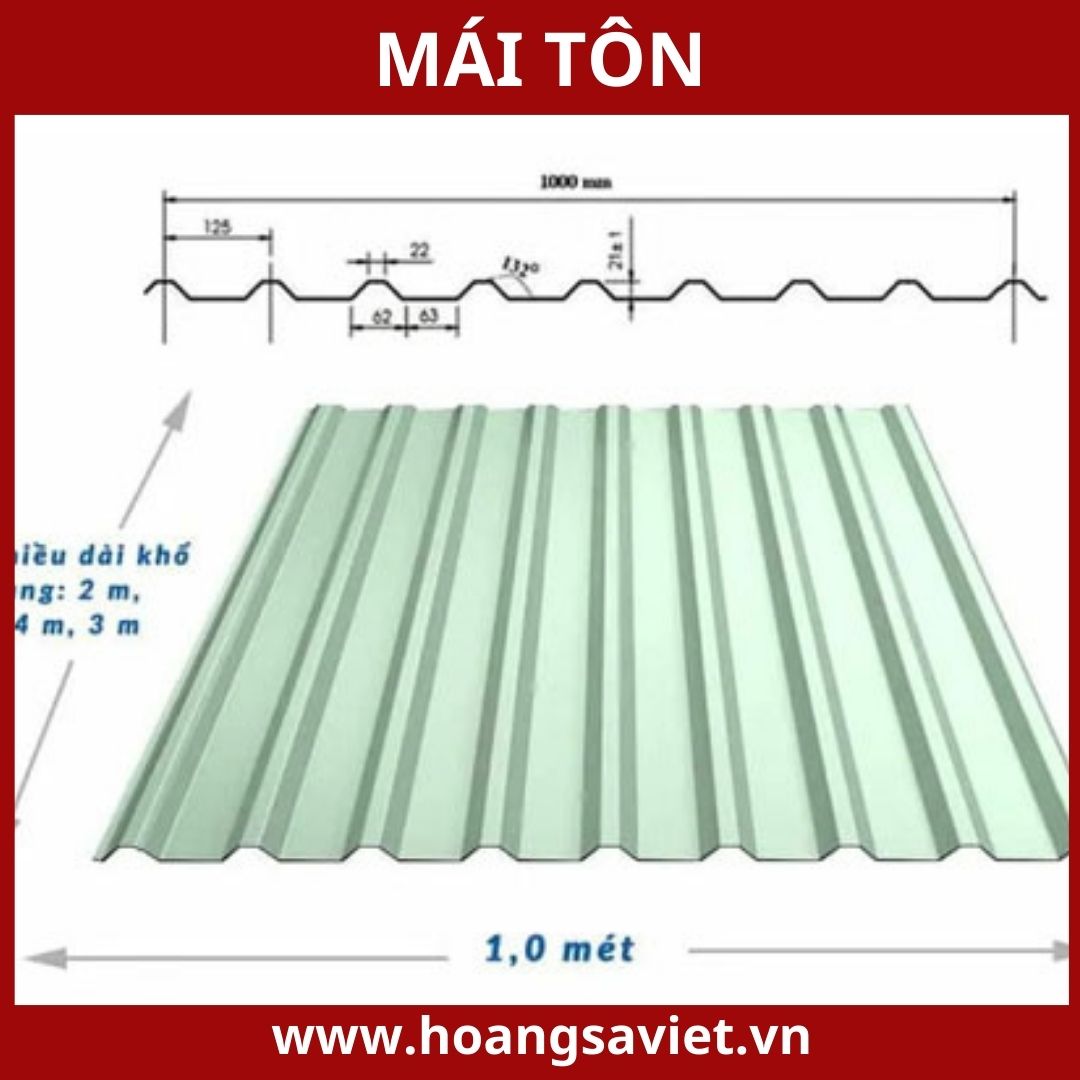
Specification: 11 waves
11-wave roofing sheets are a great choice for many construction projects, providing durability, sturdiness and high aesthetics. Below are the detailed specifications of 11-wave roofing sheets :
- Corrugated iron gauge : 11-wave roofing corrugated iron has a standard width of 1.07 m, with a useful corrugated iron width of up to 1200 mm. This size helps the corrugated iron sheet cover wider, minimizing the number of joints, thereby enhancing the ability to protect the roof from the effects of weather.
- Distance between corrugated iron panels : The distance between corrugated iron panels is 2 cm, optimally designed to ensure stability and uniformity of corrugated iron panels. This distance not only helps the corrugated iron sheet bear better weight, but also improves drainage ability, preventing water stagnation on the roof.
- Thickness : 11-wave roofing sheets have a variety of thicknesses, from 0.3 mm to 0.58 mm. With a variety of thicknesses, this type of corrugated iron can meet the needs of many different types of projects, from civil projects to industrial parks, factories, warehouses, ensuring durability and durability. optimal bearing capacity.
- Length : 11-wave roofing sheets usually have common lengths of 2 m, 2.4 m, and 3 m. However, the length of the corrugated board can be cut to the customer's specific requirements, providing maximum flexibility in design and construction. This helps optimize material usage, minimize waste and ensure the highest aesthetics for the project.
Thanks to these superior technical characteristics, 11-wave roofing sheets not only provide durability, load-bearing capacity and good resistance to weather impacts, but also contribute to creating a modern, luxurious beauty. important for projects. Choosing 11-wave roofing sheets is the perfect solution to protect and enhance the value of your construction project, meeting strict requirements for quality and aesthetics.
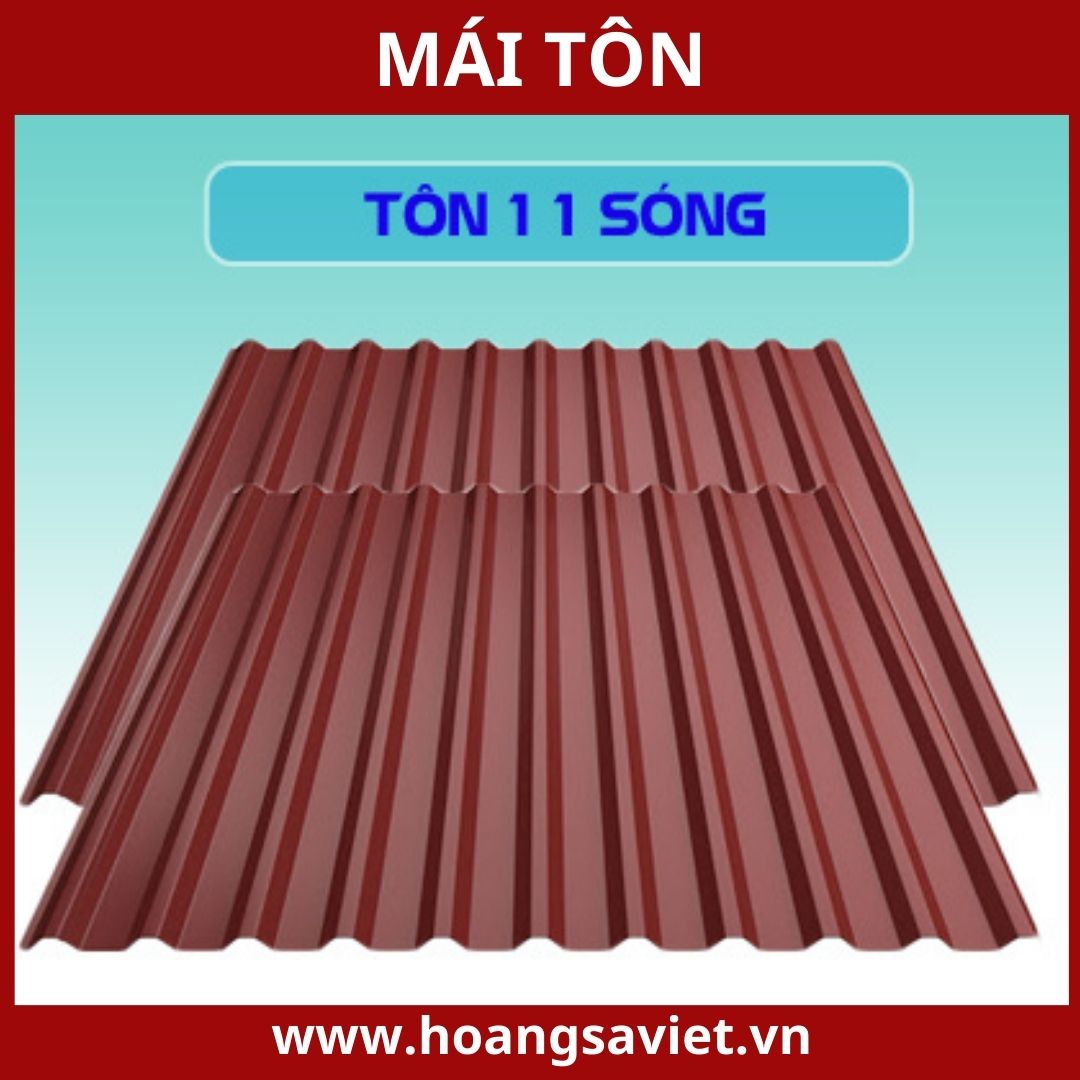
Appropriate thickness of corrugated iron roof
Depending on the specific requirements of each project design, the thickness of the corrugated iron roof will have certain differences. Normally, the commonly chosen corrugated iron roof thickness ranges from 0.4mm to 0.5mm, meeting a variety of needs.
Choosing the thickness of the corrugated iron roof not only directly affects the durability of the building but is also related to heat resistance and sound insulation. Corrugated iron with greater thickness will provide higher heat and noise protection efficiency thanks to its ability to absorb and minimize the transmission of heat and sound. This is especially important for buildings that need to maintain a cool and quiet interior environment, such as homes, offices, or industrial parks.
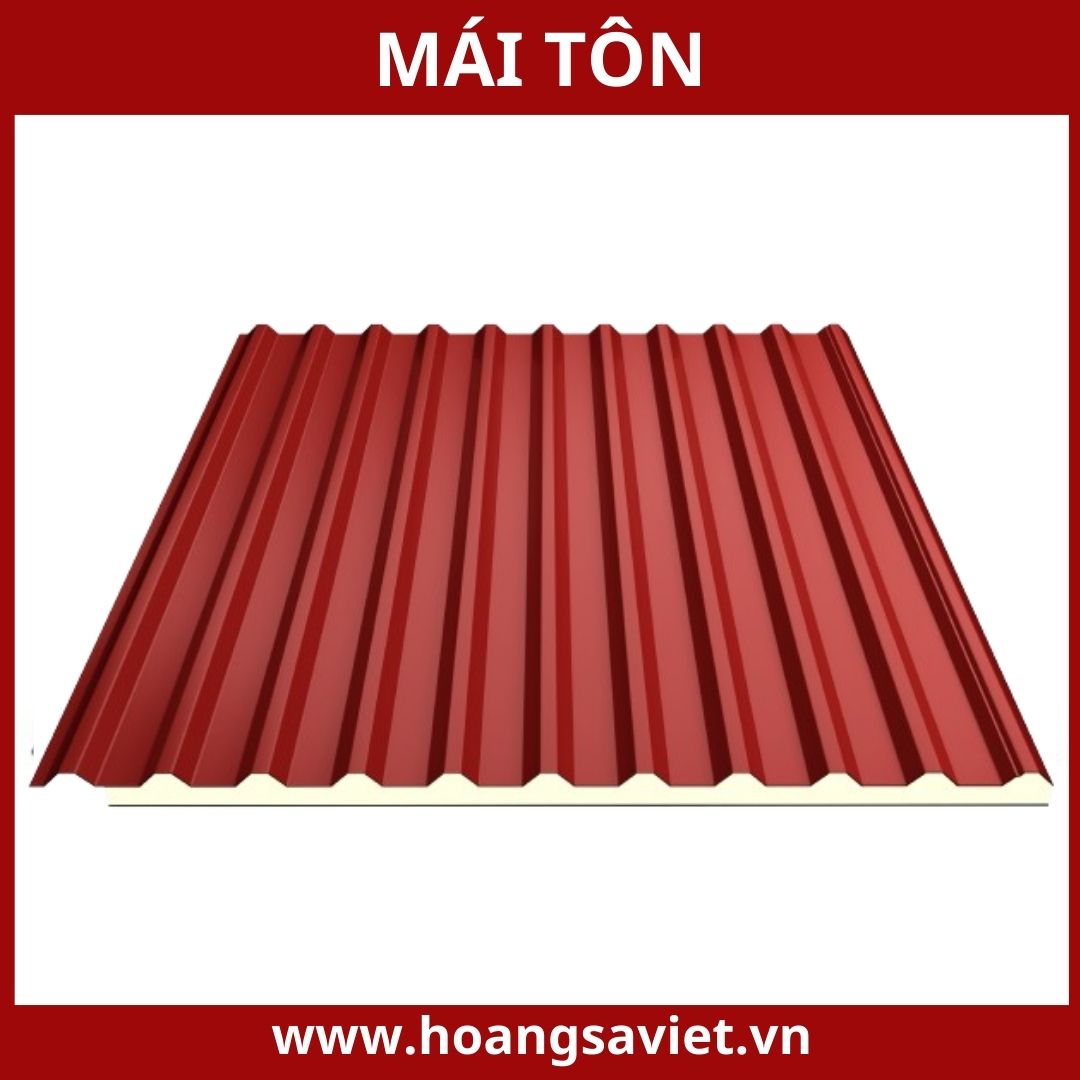
However, it should be noted that thicker corrugated iron also comes with higher costs. The cost of corrugated iron roofs will increase proportionally with thickness, so when choosing materials, customers need to carefully consider efficiency and investment costs. Determining the appropriate corrugated iron thickness is not only based on technical factors but also must consider the budget and specific requirements of the project.
For projects that require high durability and good resistance, investing in thicker corrugated iron will be a reasonable and long-term choice. Meanwhile, for projects with limited budgets, choosing corrugated iron with moderate thickness but guaranteed quality can also be the optimal solution. Customers should consult with reputable experts and contractors to make the best decisions for their project, ensuring both high efficiency and cost optimization.
SEE MORE PRODUCTS:
Advantages of corrugated iron roofs
The advantages of corrugated iron roofing lie in many aspects, starting from the main material which is high quality galvanized steel or zinc aluminum, ensuring high durability and resistance to corrosion and rust in harsh environments. This product is also known as an environmentally friendly option that can be recycled after it is no longer used, helping to reduce waste and contribute to environmental protection.
With a simple, compact structure, corrugated iron roofing is easy to construct without wasting much time and effort. This helps save costs and optimize the construction process for projects.
The diverse colors and rich designs of roofing sheets meet all aesthetic requirements of the project. Depending on the architectural style and design ideas, users can choose from a variety of colors and designs to create a highlight for their home or project.
Finally, corrugated iron roofing brings high economic efficiency due to low maintenance costs and long usage time. With good bearing capacity and good protection for the project under the influence of weather, less maintenance and repair also helps reduce costs during operation and maintenance of the project.
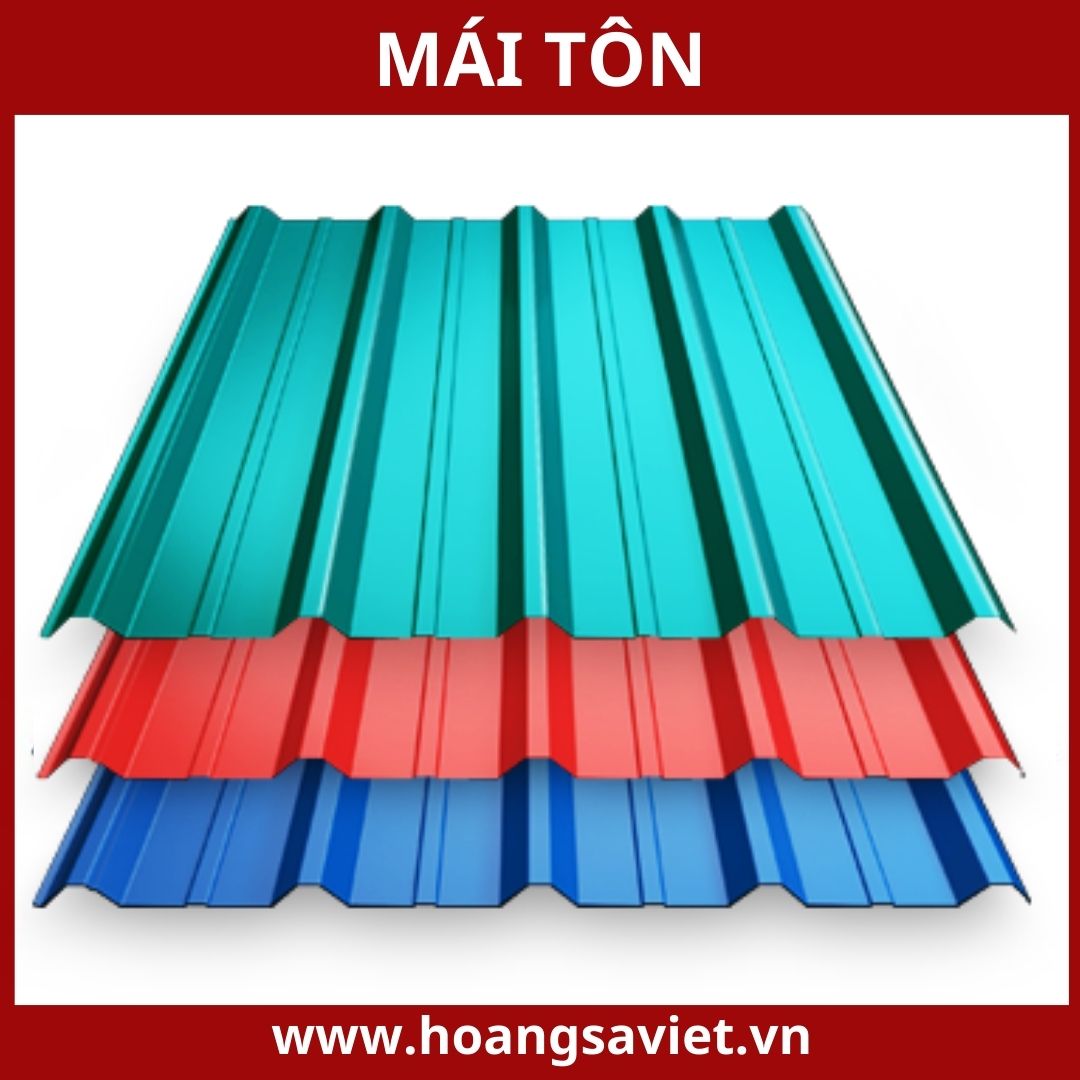
Current price of corrugated iron roofs
The price of corrugated iron roofs today is often influenced by many different factors, including:
- Production materials : Prices may fluctuate depending on the price of key materials such as steel and aluminum. Fluctuations in the prices of these materials can affect the final price of the roof.
- Production technology : Advances in production technology can help reduce production costs, thereby reducing the cost of corrugated iron roofs.
- Size and technical characteristics : Corrugated iron roofs come in many different types with different sizes, thicknesses and technical characteristics. These factors also affect the final price.
- Market and supply and demand : Fluctuations in supply and demand in the market can also affect the price of corrugated iron roofs.
- Policies and regulations : Policies on import taxes, value added taxes and regulations on quality standards can also affect the price of corrugated iron roofs.
Due to these factors, the price of metal roofing can vary from one time to the next and may be different in different regions. For the most specific and accurate information about the price of corrugated iron roofs, you should contact the manufacturers or suppliers directly.
Hiện chưa có đánh giá nào về sản phẩm này!
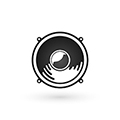
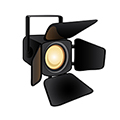
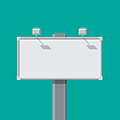
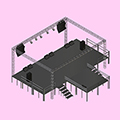
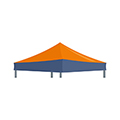



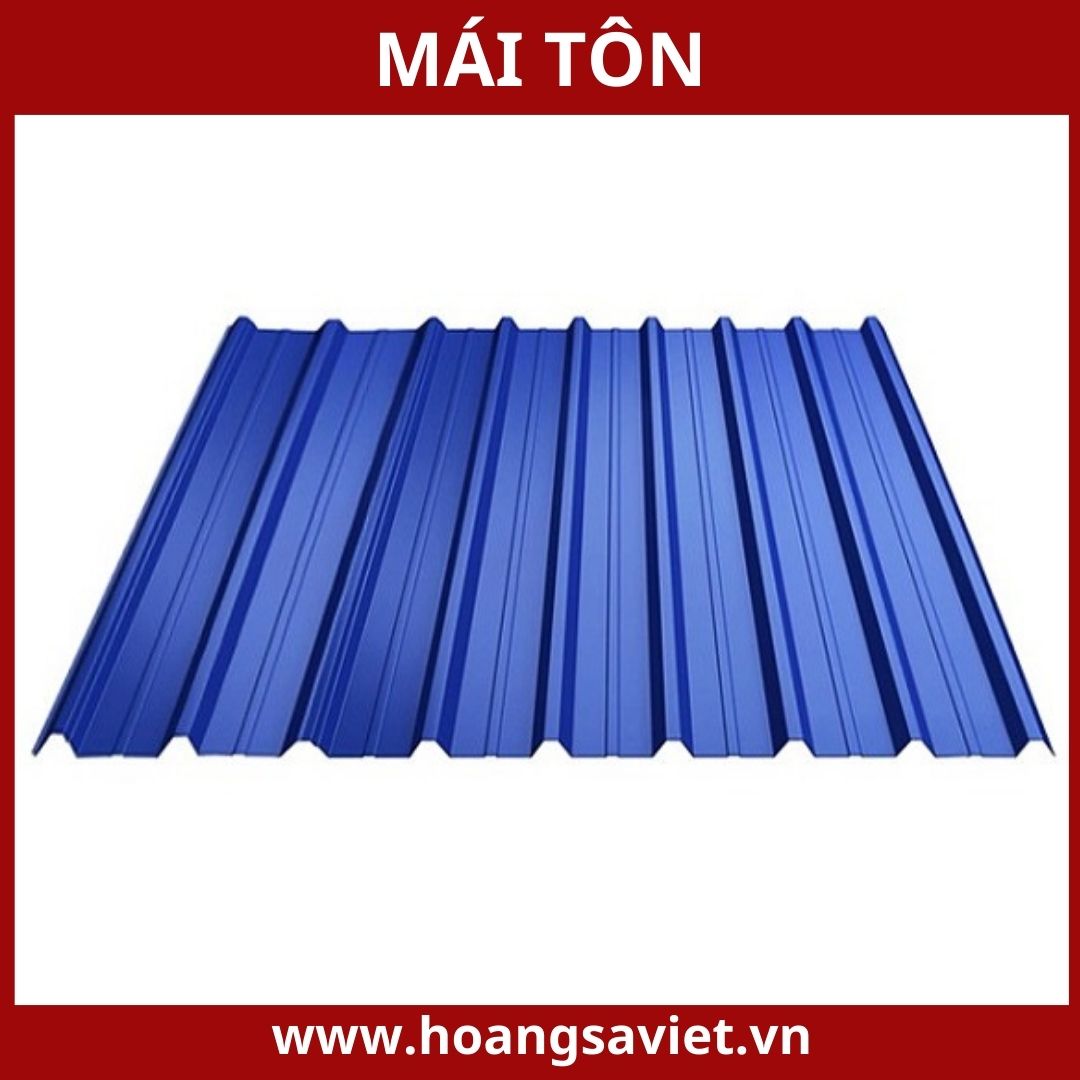
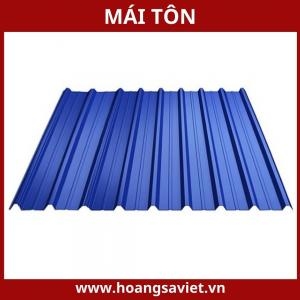
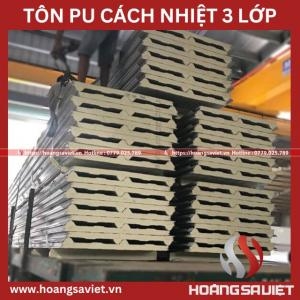
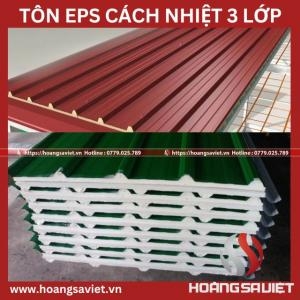
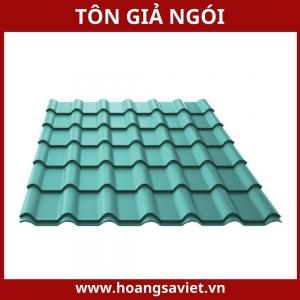
.jpg)
.jpg)
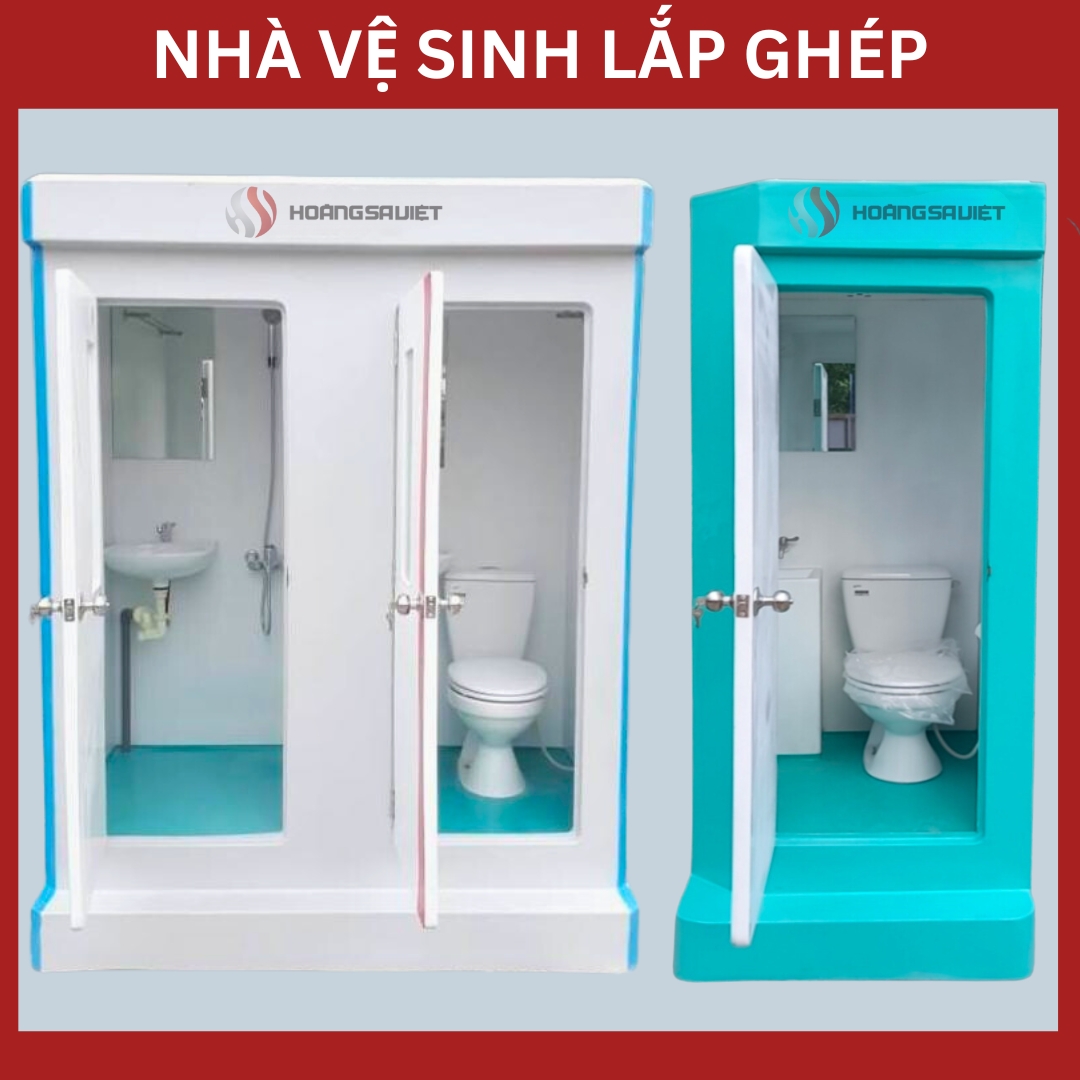
.jpg)
